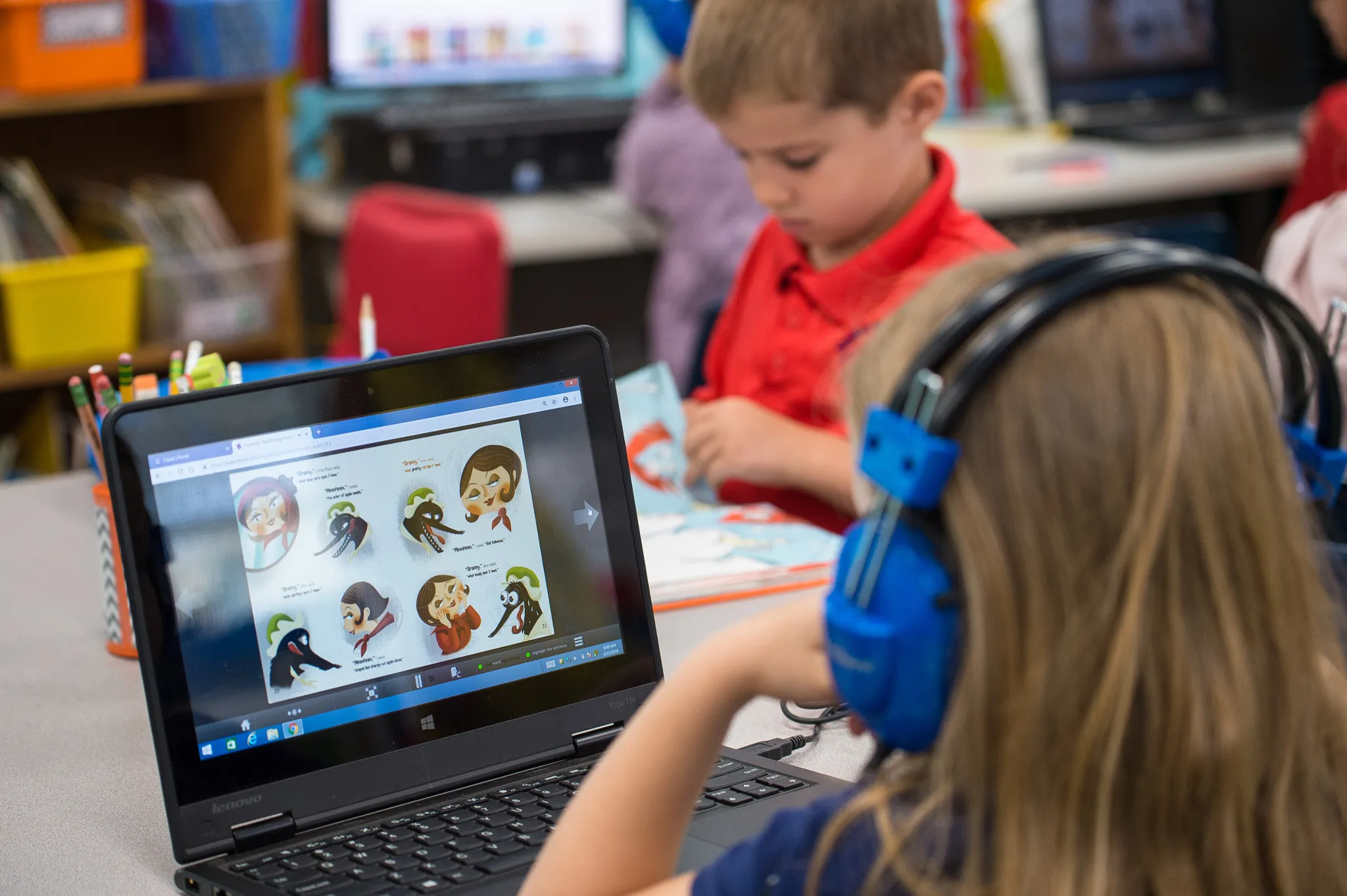Steven Gibson, Head of Key Stage 2 English and a class teacher at Jumeirah English Speaking School (JESS – Arabian Ranches), had a an interesting conversation with Education UAE to discuss his professional thoughts on Renaissance and how it helps in achieving good student outcomes.
“JESS has been in partnership with Renaissance for seven years now,” Steven begins, “and the Star Assessments, in particular, is an excellent tool for monitoring growth and spotting potential challenges.”
Star Assessments helps schools and individual teachers streamline the entire process, providing valid, reliable data to promote the delivery of the right instruction, at the right time, for the right reason. “And as an English teacher, AR (Accelerated Reader) is excellent; it works very well and the children love it,” Steven explains. “It adds a bit of competitiveness and at the same time, it allows us to home in and focus on where a student might not be pushing themselves as much as they might to reach their unique potential.
“The students find it easy to use and enjoy the immediate results. It is an effective strategy to evaluate how well they are doing with regard to independent reading. The assessment reveals the student’s areas of strength and weakness as well as a wealth of information that can be used to work with them to hone their particular skills and abilities,” Steven says.
Of course, reading is too often seen as a hardship by youngsters. Putting pressure on children to read certain books (many of which are the ones we enjoyed ‘back in the day’) can overshadow their ability to read for fun. It might then be challenging to pique a child’s attention once they have lost it. Self-motivation and curiosity suffer if teachers and parents always pick the literature. But if we want to help our kids form a good relationship with reading, we should pay attention and allow them the independence to choose.
“Self-motivation and curiosity suffer if teachers and parents always pick the literature”
“We must put trust in our young people, and that’s what we do at JESS. As a result, we have seen a high success rate in students who have kept their AR goals. And one of the reasons for this is that it gives students more freedom, allowing them to choose the books they want to read instead of having it forced upon them,” Steven says. “Naturally, the choice is enormous, so students can focus on their interests, favourite authors, preferred subjects – the list goes on. But ultimately, it makes the learning experience so much more engaging and fun.”
“When educators share data with families meaningfully, they form a powerful partnership that benefits students”
When Data Becomes a Story
As Steven illustrates, AR and other Renaissance tools are a real boon for educators, but we wondered if a school was new to this technology, how important it would be for teachers and administrators to have professional development and training in order to collect, evaluate and use data effectively? “It’s a little bit of a learning curve but it’s quite intuitive, so you soon get the hang of it, “Steven says. “Once you do, it ceases to be just data and becomes a story; it can be fascinating to see how individual students progress year on year, seeing their achievements and progression. It’s good to be able to see the student’s growth and share this information with parents.
“When educators share data with families meaningfully, they form a powerful partnership that benefits students. A number in isolation can be confusing, but when that data makes sense, parents can engage and act on it and are able to understand their child’s classroom activities, tests, and other assessment measures, thus understanding their strengths and, just as importantly, their needs.”
“The students find it easy to use and enjoy the immediate results”
Useful Evidence
Since school inspections are essentially the only way for governments to guarantee and assess educational quality, they play a crucial role. When done well, school inspection is a skill that has the power to transform both teaching and learning. However, can the Renaissance suite of tools assist a school in preparing relevant information for inspectors?
“Yes, because inspectors need to know and understand the unique structure, behaviours, strengths, and weaknesses of a school, and providing such data is yet more useful evidence for them. So, I think it is quite valuable with respect to school inspections,” Steven concludes.
“Assessment-driven instruction and practice are central to continuous learning”
There is no doubt that when teachers bring together tuition and guidance with a multi-layered look at where students are and what they’re ready to learn, young people grow. Assessment-driven instruction and practice are central to continuous learning and at Renaissance, they have developed tools that can more effectively accomplish advanced learning goals and outcomes, with less resistance, fresh insight, and more student involvement.
